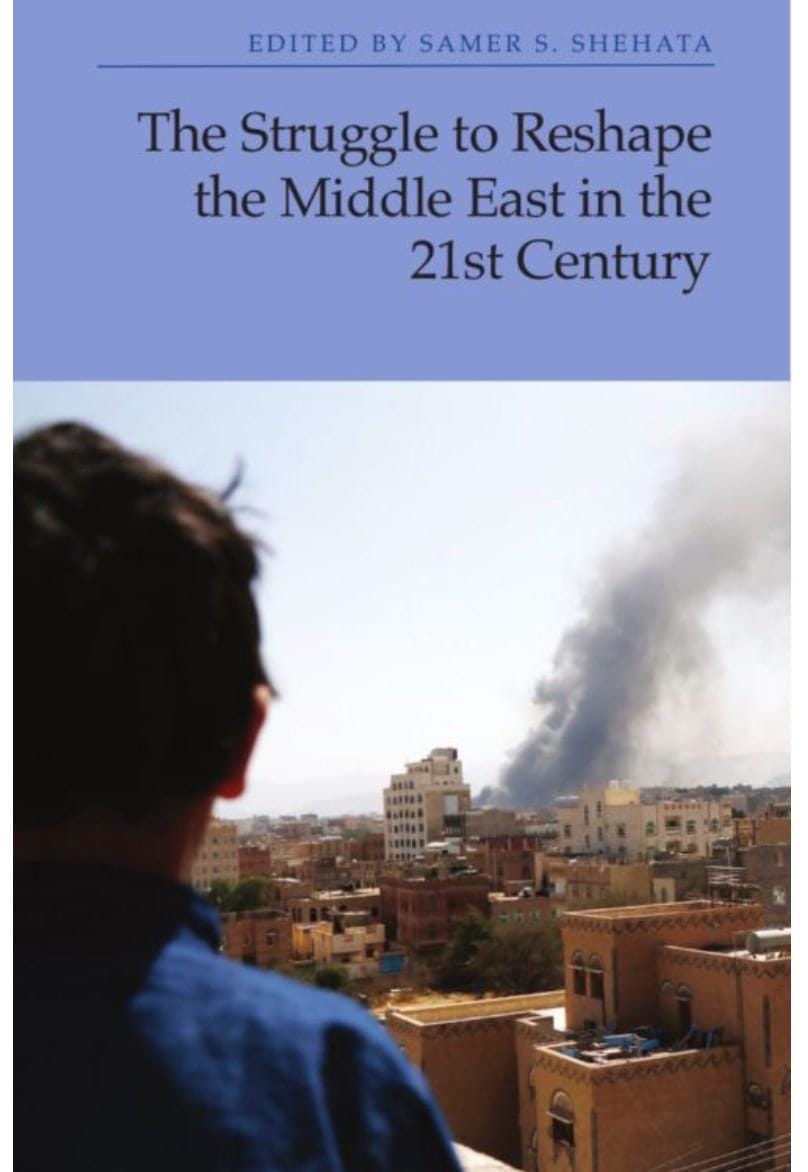The Struggle to Reshape the Middle East
I've got a chapter in Samer Shehata's very useful new collection on regional politics
Samer Shehata, ed., The Struggle to Reshape the Middle East in the 21st Century (Edinburgh University Press, 2023)
I was thrilled yesterday to receive a copy of a new edited volume produced by Samer Shehata, partially based on a conference at the University of Oklahama a few years ago, entitled The Struggle to Reshape the Middle East. The workshop and the volume set out to explore how regional competition since the 2011 Arab uprisings had affected politics across levels of analysis. As it developed, the collection widened the lens to consider the longer-term effects of the 2003 US invasion and occupation of Iraq, drawing connections between the shattering of Iraq, the intensification of regional competition, and the horrific layering of one humanitarian catastrophe after another.
My opening chapter lays out a broad theoretical framework for understanding the new ways and means of power politics in the post-2011 Middle East. It draws on arguments which had developed in several Foreign Affairs articles (including the idea of a form of security dilemma created by the opportunities and threats created by the nearly simultaneous uprisings in so many regional states), developing the theoretical logic more fully and embedding it within the IR literature. I try to make the case, once again, for the deeply transformative impact of the uprisings for Middle Eastern politics. I put the 2011 disruption on a par with 1991 (the Gulf war and the US move to assert its regional and global primacy) and 2001 (9/11, the war on terror, the invasion of Iraq and the massive expansion - and overextension - of US interventionism in the region). 2011, and the vicious counter-revolutions and proxy wars which followed, deeply destabilized the US-led regional order in ways which never really recovered and probably never will.
My chapter here hopefully will be useful as a one stop summary of the theoretical argument about the nature of the structure of the contemporary Middle Eastern regional order. The longer version of those arguments will have to await an edited volume based on a POMEPS workshop which will hopefully be on its way to publication soon!
There’s a lot of great contributions in the volume which will be of interest to anyone concerned with regional international relations. Waleed Hazbun has a characteristically incisive overview of US policy in the region from Obama to Trump, taking seriously the concept of turbulence. A number of chapters focus on how specific countries adapted to the post-uprisings strategic environment: Israel (Noa Schonmann), Iran (Nader Entessar), Turkey (Genzer Özcan and Soli Özel). Others focus on specific arenas for conflict: the blockade of Qatar (Kristian Coates Ulrichsen), the war in Yemen (Waleed Mahdi), Egypt’s externally backed military coup (Samer Shehata). And several chapters examine how the new environment affected key Islamist sectors, including al-Qaeda (Cole Bunzel) and Salafi movements (Valeria Resta and Francesco Cavatorta). It’s a great lineup of contributors, edited carefully to provide readable and informed analysis of a turbulent era in regional politics.
This collection should definitely be useful for undergraduate courses on the International Relations of the Middle East (where appropriate texts are often hard to find), or Middle East Politics more broadly. And if any subscribers are interested in my chapter, let me know!




